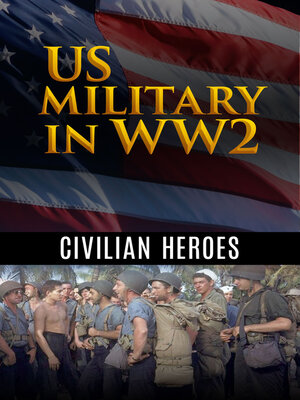Civilian Heroes: They Call It Pacific, Manila Espionage and Can Do! The Story of the Seabees
ebook ∣ US Military in WW2
By Myron B. Goldsmith

Sign up to save your library
With an OverDrive account, you can save your favorite libraries for at-a-glance information about availability. Find out more about OverDrive accounts.
Find this title in Libby, the library reading app by OverDrive.



Search for a digital library with this title
Title found at these libraries:
| Library Name | Distance |
|---|---|
| Loading... |
US Military in WW2 (Volume 3) Civilian Heroes presents three accounts of life during World War 2 from unsung, behind-the-scenes players: They Call It Pacific by Clark Lee; Manila Espionage by Claire "High Pockets" Phillips and Can Do! The Story of the Seabees by William Bradford Huie.
They Call It Pacific by Clark Lee
Clark Lee was an AP reporter stationed in Manila when the Japanese invaded the Philippines in December 1941. They Call It Pacific begins as an account of events leading up to the outbreak of war and then morphs into an exciting real-time account of Lee's mad-dash escape across the islands to the last US ship still in port.
Manila Espionage by Claire "High Pockets" Phillips and Myron B. Goldsmith
The autobiography of Claire Phillips, an American entertainer living in Manila in 1941 who used the city's underground Tsubuki Nightclub as the base for a resistance movement during the Japanese occupation.
Can Do! The Story of the Seabees by William Bradford Huie
The Seabees began as barely armed civilians with no military training. They had an average age of 35. GI's would joke, "Never hit a Seabee, for his son might be a Marine." But America's bulldozing, jungle-hacking, 'Jap-cracking' Construction Battalion or the Seabees (C.B.'s) soon proved themselves miracle-construction-workers in seemingly impassable combat zones. Before World War 2, Marines were the ones to 'get their first,' but the need for roads in the muddy battlefields of the Pacific meant that claim would pass to the Construction Battalion. Their early motto was 'Can Do!'







